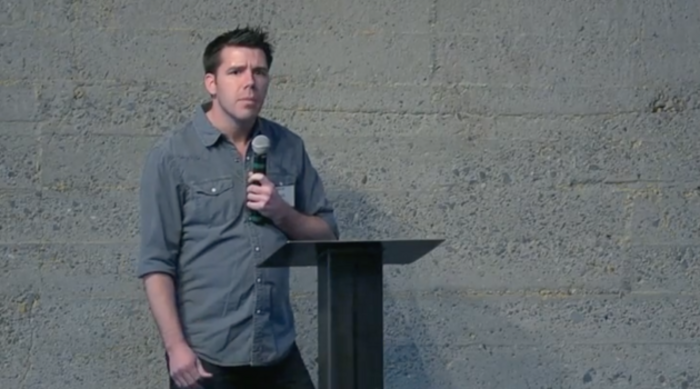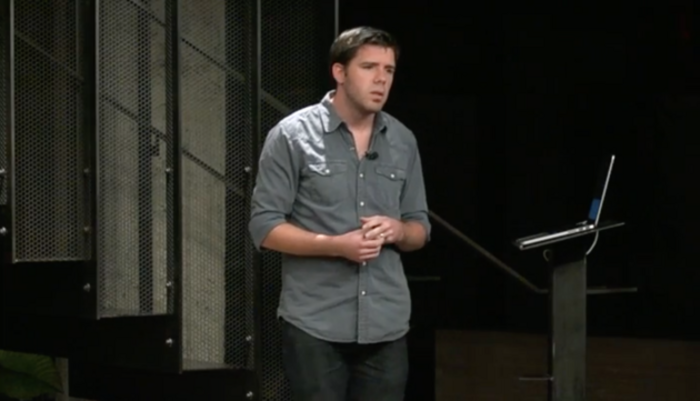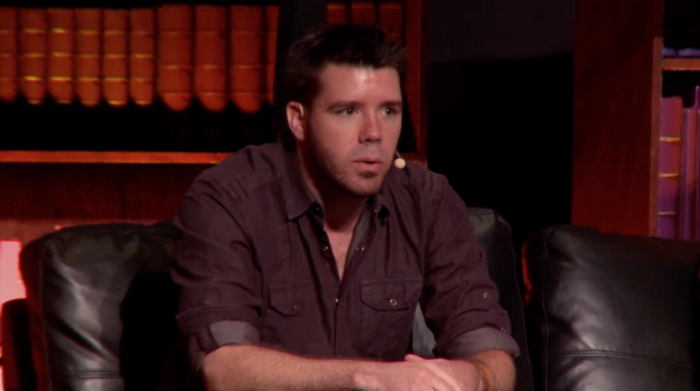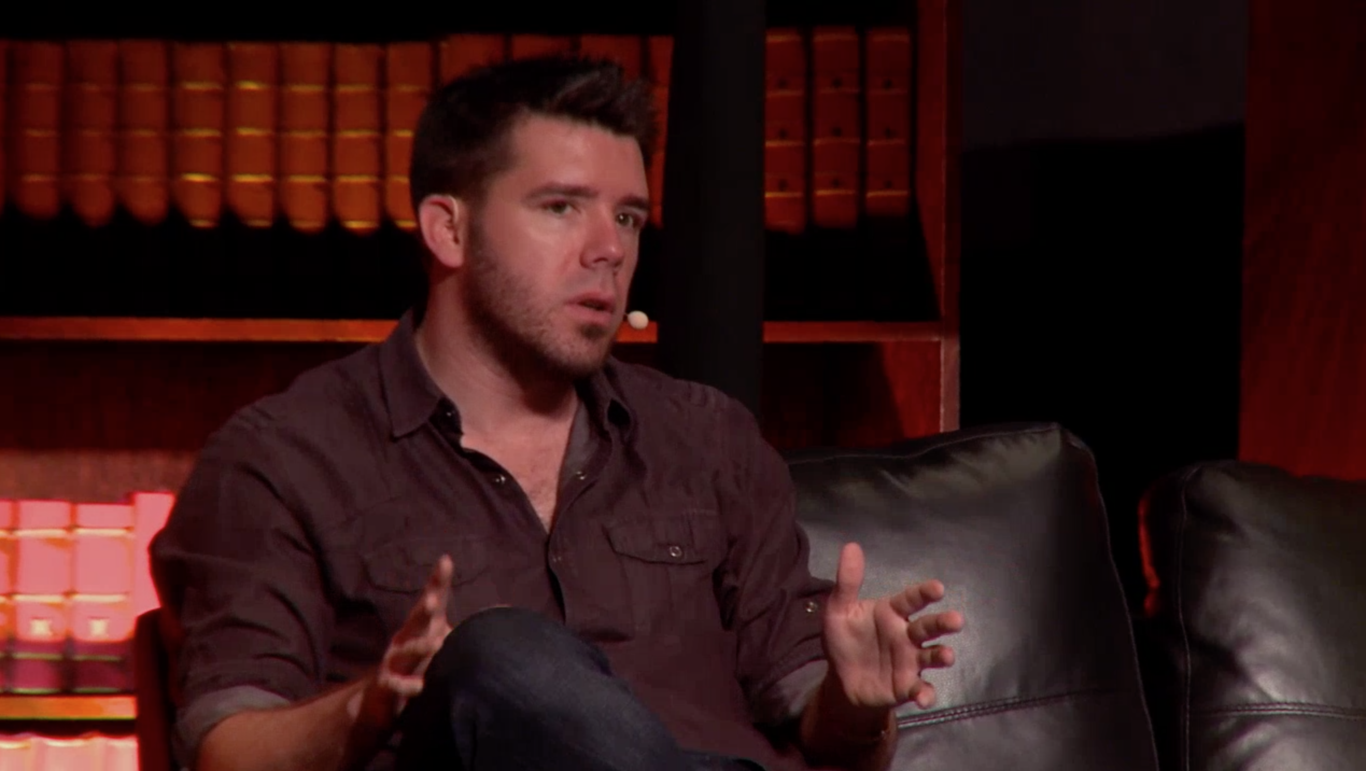From 'a bunch of nerds' to 'sex parties' – how this Irish tech founder has seen Silicon Valley change
Paul Biggar talks about why he fell in love with the US tech scene and the ‘party on the edge of the earth’.
SLEEPING ON AN airbed in a ‘hacker house’, a startup that didn’t work out, bagging massive funding rounds and being invited to possible sex parties, Paul Biggar has seen the highs and lows of Silicon Valley.
After moving to the world’s tech capital in 2009, Biggar did what a lot of people do – he launched a startup. It “went nowhere”, but his second bite at the cherry, a tech outfit called Circle CI, has worked out a bit different.
In January of this year that company, which creates automation tools used by developers at Facebook and Spotify, hit the headlines when it raised $31 million as part of a series C round of funding. But at the same time, Biggar’s name was in the news for different reasons.
A Vanity Fair exposé published in January about the “drug-fueled, sex-laced parties” hosted by some of Silicon Valley’s elite discussed one gathering called the “party on the edge of the earth”.
Biggar, who was in attendance at the party, penned a blog about his personal account of what happened, and it got people’s attention.
He wrote: “This wasn’t billed as a sex party; it was official party of the VC firm. But we were certainly primed for it – there was a sorta ‘wink-wink, nudge-nudge’ thing going on. We were warned before going not to be freaked out.”
The Vanity Fair piece was an extract from ‘Brotopia: Breaking Up the Boys’ Club of Silicon Valley’, a book by Emily Chang that highlights the discrimination and sexual harassment faced by women in tech.
After the publication of the extract, which told of a woman’s uncomfortable experience at the party run by a top VC firm, Biggar says he felt the need to speak up.
“The reason I wrote (the blog) is, when you see how bad things are in the industry in certain areas and you have the opportunity to step forward you sort of have to,” he told Fora.
“I didn’t want to be the guy who was at the party but kept my mouth shut because I wanted to get funding in the future or whatever. There are definitely going to be negatives out of that for me. I haven’t seen any of them yet, but they are probably not the sort of things you would see.”
 Paul Biggar
Paul Biggar
His blog, which criticised investors who abuse their power dynamic to exploit women, attracted hundreds of thousands of views and was cited by some of the world’s biggest news media outlets in the aftermath of the Vanity Fair article.
“I can’t say that I did much, but I said what I saw. And my goal was to support the Jane Doe in the Vanity Fair article.
“You hear about this stuff on the grapevine, it’s something women talk about. And when you’re friends with women in tech, you eventually get into the circle where they will tell you the shit that happened. They don’t say who necessarily, but you become more aware of it.
“Women talk, they know what’s going on and they have back channels that they can use to find out who is shitty and who is not. A lot of the time they have to put up with shitty people because they need to make these awful calculations about who is the least shitty person they can work with.”
Moving stateside
The Silicon Valley that Biggar knows now is very different to the one he fell in love with when he first moved to the west coast of the US.
He relocated to the area just after wrapping up his PhD research in Trinity College, with a flying visit to give a talk and present his research at Google and Facebook making up his mind.
“When I went over I stayed at what was being pitched as a ‘hacker house’. It was the startup incubator thing of a bunch of nerds living in a house.
“So I went over and slept on an airbed and all these guys were going through the incubator Y Combinator while I was there. I saw how exciting it all was and I got to meet a lot of companies going through Y Combinator, including the Airbnb founders. The excitement was really palpable.”
Biggar’s mind was made up. He moved over to Silicon Valley and has seen it rapidly change.
Speaking to Fora ahead of his appearance at a Startup Grind event in Dublin next month, Biggar says the sexy, multimillion-dollar funding rounds are still relatively new to him, and Silicon Valley.
“It was a different sort of world in 2009. There wasn’t any money in startups and it hadn’t turned into this huge industry that it is now. It was just a bunch of people super excited about what they were building.
“The speed of it going from not being a thing … there was a while when everything started moving north to San Francisco around 2011. By 2013 you started hearing a lot about gentrification and how tech is taking over and by 2015, people were over it.”

The rapid rise of tech startups has caused a bit of scorn against the industry, according to Biggar, and everyone in the sector is aware of it.
“There is this big thing in (San Francisco) at the moment about scooters. This green, very energy-efficient mode of transport, and everyone hates it because it is associated with tech.
“I’ve no dog in the fight, but it is a real indicator that any sort of innovation coming from Silicon Valley is viewed with scorn.”
But Biggar thinks there is a lot of merit to some of the criticism, with massive $9 billion catastrophes like Theranos doing the startup sector no favours.
“The critics aren’t wrong, there is a lot of shit that’s going on. There has been awful shit like Theranos.
“One of the pervasive criticisms is all this money is being thrown at something worthless when it could be put into something that benefits society. It’s completely right, but there is a lot of good too in Silicon Valley.”
New project
Even though Silicon Valley has changed a lot – and the fact its tech startup sector is far from perfect – Biggar says there is still no better place to build a company. And that’s exactly what he’s doing now.
Biggar has stepped away from Circle CI – but retained his place on the board – to focus on creating a new startup called Dark. It’s a new project of his which aims to create tools that make coding easier for developers.
The startup has raised $3.5 million from investors so far, but is still trying to find where its product will fit in the market, Biggar adds.
“I just love building things and this is the place to do it. I was experimenting briefly with living in New York when I was starting Dark, but the difference between New York and San Francisco is night and day.
“But I think it is becoming increasingly possible to build a tech startup in other places. The model for example that Intercom did is a really solid and that is what I tend to encourage Irish entrepreneurs to do. Send the CEO over to Silicon Valley and keep the product development in Dublin.”

So, would Biggar take his own advice and bring part of his new four-person operation over to Ireland? Not right now anyway.
“There is something about the weather over here. It doesn’t rain and it’s not cold, ever. It’s surprising the effect that has. In terms of having operations or development in Ireland, the stage Dark is at right now is one where I really believe in having everyone in the same room.
“With Circle CI, we hired some early people in Ireland and that was possible because we knew what we were building and there was a Circle CI shaped hole in the market.
“At Dark, we are inventing something new and the amount of communication you need to do is really high. So the only option is to have all that in the room.”
Paul Biggar is speaking at Startup Grind’s event in Google’s Dublin HQ on 3 July.





